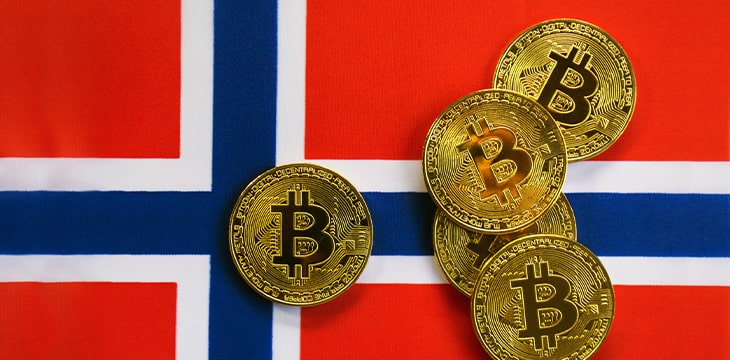|
Getting your Trinity Audio player ready...
|
The Storting, Norway’s parliament, will not go against the growing Bitcoin block reward mining industry. In a recent vote, the majority of members of the parliament voted against a proposal to ban block reward mining.
The bill to ban Bitcoin block reward mining was first proposed by Rødt’s Sofie Marhaug, a member of Norway’s communist party—the Red Party. The Storting representative stated that block reward mining wastes electricity. The bill proposed banning the activity to free up electricity for homes and other industries.
However, the proposal failed to catch on with the majority of the parliament. According to Norwegian news outlet E24, the only parties that supported the bill were other left-leaning parties, including the Socialist Left Party, and the Green Party.
“We are obviously disappointed with the majority here. In the future, we will electrify large parts of society. If we do not want to carpet Norwegian nature with wind power, we must actually prioritize what the power is to be used for,” Marhaug told E24.
The report notes that the parties supporting the bill are now looking to rein in block reward mining by introducing a “full electricity tax.” Currently, data centers that participate in block reward mining pay a highly subsidized electricity tax.
While households, companies, and the public sector pay about $0.015 per kilowatt-hour, data centers pay around $0.00085780 per kilowatt-hour. However, even this proposal is bound to face some opposition as the parliament has raised concerns about discriminating against any particular industry.
Norway’s contribution to the Bitcoin hash rate has increased rapidly
Bitcoin block reward mining energy usage concerns have risen even as Norway is coming to be recognized as one of the powerhouses for the activity. CNBC reporting data from an Arcane Research study described the European country as a “green oasis” for block reward mining.
The study found that Norway now contributes up to 0.75% of the global hash rate of the Bitcoin network. And all of it is powered by the country’s abundant renewable energy sources.
Norway generates 88% of its energy requirements from hydroelectric power, a further 10% comes from wind energy, and the remaining is supported by natural gas. Arcane also found that digital currency adoption in Norway has been increasing, with up to 10% of the adult population now owning digital assets.
The growing adoption has prompted the Central Bank of Norway to consider issuing a CBDC. Similarly, regulators in the country have warned of risks in investing in digital currencies.
Watch: CoinGeek New York, Future of Digital Asset Trading & Financial Services

 02-22-2026
02-22-2026 




